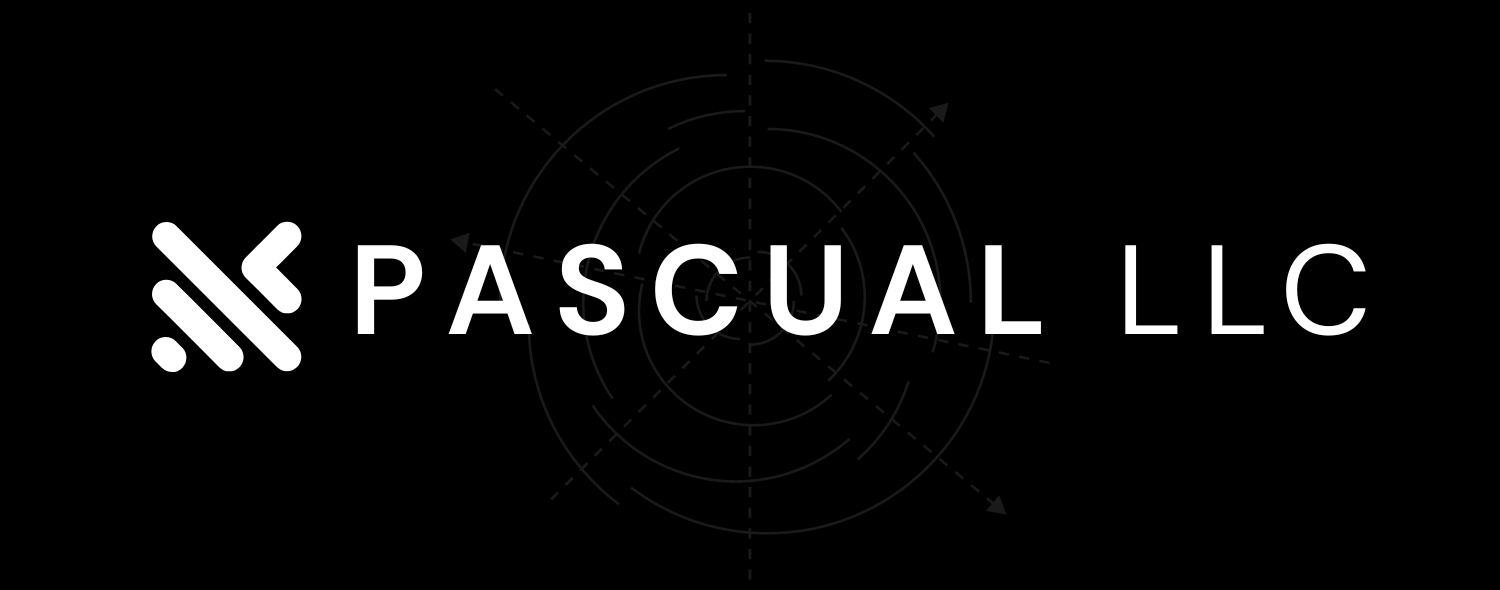Are you looking for ways to optimize your SEO with semantic analysis? Look no further! Discover how semantic analysis SEO can drive targeted traffic to your website and elevate your online presence. As an experienced and witty SEO professional, I can provide helpful tips to make sure your site ranks higher in search engine results. Learn how to maximize your SEO efforts with the right semantic analysis strategies, and make sure your business reaches the right people. Get ready to skyrocket your visibility and success with semantic analysis SEO!
Semantic analysis SEO is an SEO practice that focuses on the meaning of a website’s content, rather than its individual elements. Semantic analysis SEO relies on natural language processing algorithms to identify the relationships between words and phrases within a website’s text, helping search engines understand the true meaning of the content and provide more relevant search results. This can be used to optimize search engine rankings as well as to improve user experience. Additionally, semantic analysis SEO can be used to identify topics that are related to a given search query, allowing search engines to provide more detailed results.
What are the benefits of using semantic analysis for SEO?
In conclusion, semantic analysis is a powerful tool for SEO that can help to improve keyword targeting, relevance, user experience, SERP rankings, and organic traffic. By utilizing semantic analysis, SEO professionals can create content that is tailored to their audience, resulting in more effective SEO campaigns and improved website performance.
Semantic analysis is an important tool for SEO because it helps search engines better understand a web page or document’s content and determine the most relevant search results for a user. By using semantic analysis, webmasters can create more meaningful and useful content for their readers, which ultimately leads to higher rankings in search engine results. Semantic analysis also helps search engines to better understand the intent of a search query and provide more relevant results for a user. Semantic analysis is also more effective at determining the relationships between words and phrases than traditional SEO techniques. For example, a search query for “running shoes” would likely return results that are more relevant to the user than if the query was simply “shoes”. Semantic analysis takes into account not just the words used in the query, but also the context of the words, the relationships between them, and the intent of the user.
Semantic analysis is quickly becoming an essential component of SEO, as search engines are now focusing more on the meaning of words and phrases within a website or document, rather than just the keywords and phrases themselves. Semantic analysis can help webmasters create content that is more meaningful and useful to their readers, while also providing search engines with the information they need to accurately rank websites and documents in their search results. With the ever-evolving algorithms of search engines, semantic analysis is likely to become an integral part of the SEO process.
What are the benefits of using semantic analysis for SEO
Semantic analysis is an important tool for optimizing your website and improving its visibility in search engine results pages (SERPs), rankings, user experience, and conversions. By leveraging semantic analysis, search engines can better understand your content and determine its relevance to a particular search query, leading to higher rankings and more traffic. This, in turn, can result in an improved user experience, as users will be more likely to find what they are looking for, and an increase in conversions. A greater understanding of your content and improved visibility can lead to more clicks, visits, and potentially more sales or leads. Tables and visuals can also be included to help readers gain a better understanding of the topic and provide useful information that can lead to increased engagement. Utilizing semantic analysis can be a great way to increase your website’s visibility, rankings, user experience, and conversions.
Semantic analysis is an important tool for improving a website’s search engine rankings. By understanding the context of a website and its content, semantic analysis helps search engines better understand the content and find the most relevant search results for users. This can result in improved search engine rankings, increased visibility, and increased conversion rates. Additionally, semantic analysis can help to identify new keywords and phrases that can be used to attract more visitors to a website. Finally, semantic analysis can help to improve the quality of content by identifying areas that may need to be improved or rewritten to better meet the needs of search engine users. All of these benefits combine to create a better overall user experience, which can ultimately lead to increased website traffic and improved search engine rankings.
What is the difference between semantic analysis and traditional SEO?
Semantic analysis is a powerful tool for SEO, as it takes into account the meaning of words and phrases, rather than just the most popular keywords. It looks for relationships between words and phrases, and pays attention to the context in which they are used. This allows websites to be optimized in a more meaningful way, rather than simply relying on popular keywords. Furthermore, semantic analysis takes into account the sentiment of words and phrases, helping to ensure that the website is optimized in the most appropriate way. For example, if a website is about gardening, then words such as ‘fertilizer’ and ‘weedkiller’ would be used instead of ‘chemical’ or ‘pesticide’. By focusing on the meaning of words, semantic analysis can help to improve the search engine rankings of a website.
By utilizing semantic analysis, SEO professionals can improve their keyword targeting, content relevance, user experience, and visibility. Semantic analysis is a powerful tool that can help to identify relevant keywords and content related to the topic of the website. This allows for more effective keyword targeting and content relevance, leading to an improved user experience and increased visibility. Additionally, semantic analysis can help to make content more organized and user-friendly, leading to a better overall user experience. Through the use of semantic analysis, SEO professionals can achieve better results and improved visibility for their website.
What are the benefits of using semantic analysis for SEO?
The implementation of Semantic Analysis has quickly become a tool of choice by marketers to improve search engine rankings and create more relevant content that is better understood by search engines. By providing a better understanding of the context of a query, semantic analysis improves the user experience and experience by serving up more relevant results. This in turn leads to increased visibility in the search engine results page, more organic traffic and ultimately improved search engine rankings. Not only that, but more relevant content also leads to better user engagement and more conversions.
In terms of creating more relevant content, semantic analysis is a powerful tool that can be used by marketers to better understand the topics that are associated with a given search query. This helps to create content that will be highly relevant to the user and will lead to a more successful organic traffic generating campaign. Furthermore, the use of semantic analysis ensures that the content is formatted according to best practices, thus improving the visibility and click-through-rate in the search engine results page, ultimately resulting in an increase in organic traffic and improved search engine rankings.
The use of semantic analysis is a powerful tool for any SEO professional, as it helps to improve search engine rankings and bring higher quality traffic to a website. Through the use of this technology, a website is able to create more targeted and relevant content that will be better understood by search engines, resulting in higher rankings and more organic traffic. This in turn leads to better user experience, increased visibility in the search engine results page, and ultimately more conversions.
Semantic analysis is a powerful tool that can help to improve the quality, visibility, accuracy, and relevance of a website’s content in order to help boost its search engine optimization (SEO) rankings. By applying semantic analysis to content, a website can better determine the intent of its users and provide more accurate, relevant, and useful information. This can help to improve the understanding of user intent and increase the chances of a website being seen by more people. With improved understanding of user intent and increased relevance, search engines are able to better understand the content of a website and place it higher in the rankings. Improved content quality and increased visibility can also help to increase a website’s overall visibility, leading to more visitors and better rankings. In other words, semantic analysis offers a powerful way for websites to boost their ranking and visibility on the search engines, increasing the chances of being seen by more people.
What are the benefits of using semantic analysis in SEO
Semantic analysis is becoming more and more important for SEO professionals in order to ensure the best results for their targeted keywords. Using semantic analysis in SEO provides many advantages and can make all the difference in a website’s success. It offers improved keyword research, content creation, user experience, and link building capabilities, which may all lead to higher rankings, more organic traffic, and better user experience.
By leveraging semantic analysis in SEO, websites can better meet user needs, improve the overall content quality, and rank higher in the SERPs. Understanding the meaning of keyword phrases and choosing the right terms to insert into the content can be a big help in improving your website’s visibility and rankings. If done correctly, this type of analysis can make all the difference in a website’s success, leading to more organic traffic, higher conversion rates, and a better user experience.
Semantic analysis is an essential component for improving the overall user experience when it comes to search engine rankings and content optimization. This type of analysis helps search engines better understand the page’s content and its relevance to the user’s query. By taking into account the context of the query, semantic analysis can help the page better rank in the search engine results. As a result, the page itself can have higher user engagement compared to other pages that haven’t been optimized for semantic analysis.
Semantic analysis also helps boost content optimization by allowing webmasters to identify the most important keywords for their page. By properly exploiting this technology, content managers can optimize the content more effectively while also improving the user experience. This will help the page better rank in the SERPs, driving more organic traffic to the website.
It is no doubt that semantic analysis is an important factor when it comes to improving search engine rankings and user engagement. With the ever-growing need for more efficient content optimization, semantic analysis can be the missing link in achieving better results. Ultimately, this technology leads to increased user engagement, higher rankings in the SERPs, and improved user experience overall.
What are the benefits of using semantic analysis for SEO?
Semantic analysis has been hailed as a revolutionary way for content creators to improve their SEO rankings. By using semantic analysis to identify related keywords and phrases, content creators can more accurately target relevant and specific keywords that can help draw organic traffic, leading to more visibility and higher rankings. In addition, the improved content relevance helps ensure that the website provides the users with the information they are looking for more quickly and accurately, leading to increased engagement and conversions. Semantic analysis helps to create a better overall user experience, which in turn leads to higher organic search rankings and improved organic visibility, ultimately leading to more website traffic. This can help content creators and web designers to capture more organic traffic and create better visibility for their websites and content.
While there are numerous benefits to using semantic analysis for SEO, there are some considerations to keep in mind. First, semantic analysis relies heavily on NLP (Natural Language Processing) technologies, which can be a complex and time-consuming task. Second, it can be difficult to determine the exact meaning of certain words and phrases, which can lead to misinterpreting the results of semantic analysis. And lastly, it is important to keep up to date with search engine algorithms so that your SEO efforts are in line with the latest standards.
To summarize, using semantic analysis for SEO can be a great way to maximize your content’s relevance, target wider keywords and boost your rankings in search engine rankings. However, it’s important to keep in mind that there are challenges associated with this process and it requires diligence to ensure its success.
What are the benefits of incorporating semantic analysis into an SEO strategy
By utilizing semantic analysis in SEO, SEO professionals can make more informed decisions on which keywords and phrases to target, create content that is much more accurate and relevant for the target audience, optimize content for better rankings in search engine SERPs and increase user satisfaction. Furthermore, by ensuring content is properly optimized for semantic analysis, marketers can benefit from higher conversions. All this adds to the overall effectiveness and efficiency of SEO strategies, making semantic analysis a valuable tool in an SEO campaign.
Using semantic analysis for SEO can be a powerful tool for maximizing organic search traffic. By leveraging related topics, optimizing content for target keywords, and providing content that is more relevant to the target audience, semantic analysis can help boost rankings, increase organic traffic, and increase user experience. Additionally, by identifying related topics and keywords, semantic analysis can help ensure that content is more relevant and provides more value to the target audience. Additionally, proper implementation of semantic analysis can lead to improved rankings and more organic traffic. As such, semantic analysis can play an important role within any SEO strategy.
What advantages does semantic analysis have in SEO?
By using semantic analysis, SEO professionals can leverage the context of a query to better target keywords, optimize content, provide a better user experience, and increase search engine visibility. This can lead to increased rankings and more organic traffic for websites. Additionally, semantic analysis can help streamline workflow by helping to identify related topics and keywords more quickly and easily than manual research. This can help to reduce the amount of time and effort needed to optimize content for search engines.
Semantic analysis is a powerful tool that can help improve SEO performance in multiple ways. It can help to identify related keyword and phrases to better target more relevant searches. It can also help to identify the best combinations of keywords for content optimization, ensuring that content is more relevant to the user and search engine algorithms, resulting in improved search engine rankings. Furthermore, it can help to identify related websites and topics related to the content, allowing for improved link building and better SEO. Semantic analysis can significantly improve the effectiveness of SEO campaigns by providing content that is more relevant to the user and more effective for the search engine algorithms. Through improved keyword targeting, content optimization, user experience, search engine rankings, and link building, SEO performance can be significantly improved with the help of semantic analysis.
Final Words
Semantic analysis is an SEO tactic used to optimize content and target specific keywords by looking at the meaning of the text as well as its relevancy and context. This form of SEO looks for words related to the desired keywords and attempts to optimize the content and context in order to enhance the content’s search engine ranking. This is done by understanding the exact meaning of words within the content and by understanding the different entities that are related to the topic. Semantic analysis SEO also looks into user Intent when indexing content. By understanding user intent, search engines can better serve their users with more relevant content.
**FAQ**
**What is Semantic Analysis SEO?**
Semantic Analysis SEO is an SEO strategy that focuses on understanding the intent of a search query and optimizing the website’s content for relevance to the query. This type of SEO utilizes techniques such as Natural Language Processing, Data Mining, Ontology, and Knowledge Graphs to better understand the meaning behind search queries and searches within a given text or context.
**How Does Semantic Analysis SEO Work?**
Semantic Analysis SEO involves creating content that is relevant to a given query. This includes the use of keywords throughout the content as well as other techniques such as tagging, meta descriptions and titles. The content should be written in a way that is tailored to the intent of the search query, with an emphasis on providing accurate and detailed information.
**What are the Benefits of Semantic Analysis SEO?**
The benefits of Semantic Analysis SEO are numerous. Using this approach allows for a more natural, organic flow of content that is tailored to the intent of the search query. This improved content relevance can result in better rankings on search engine results pages, leading to more visibility for the website. Additionally, using Semantic Analysis SEO can increase click-through rates and create deeper engagement with users, improving the overall user experience.
**Conclusion**
Semantic Analysis SEO is an important strategy for maximizing visibility and user engagement on search engine results pages. By leveraging techniques such as Natural Language Processing, Ontology, Data Mining and Knowledge Graphs, content can be tailored to the intent of the search query to improve rankings and click-through rates. Ultimately, employing Semantic Analysis SEO can benefit any website and help to optimize it for resellers and customers.

